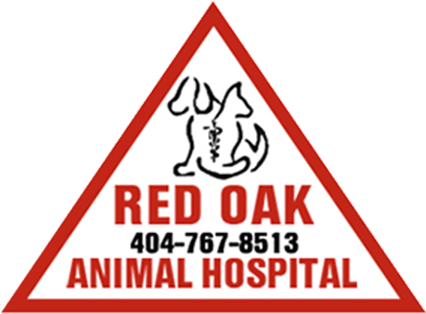Itchy Pets
The term for itching in pets is pruritus and can manifest as shaking head, scratching ears, licking or chewing paws, picking up the rear legs to scratch when pet along the back (pedal reflex), scooting, and more. Pruritus can be one of the more frustrating problems we see in pets and can result in problems such as hotspots (pyotraumatic dermatitis), granulomatous ulcers, superficial or deep skin infections (pyoderma), interdigital cysts, foot infections (pododermatitis), hair loss and crusting around the eyes, and ear infections (otitis externa). There are three main causes as well as some less common causes of pruritus in pets and a systematic approach is needed to determine the cause of the pruritis and the best way to treat the patient.
- Parasites: Common parasites that cause pruritus include ringworm, fleas, demodex mites, and scabies mites (mange). Each parasite tends to cause pruritus in specific locations and oftentimes multiple pets in the house will be affected. Parasites are diagnosed either through treatment trials or through tests including skin scrapes, sarcoptic mange antibody blood test, ringworm PCR/culture and flea combing. Ultimately, in this area of the country it is wise to have your pet on a good flea/tick and mite prevention and when it comes to an itchy dog – the best options are the isoxazoline family of preventatives, which are given by mouth and include products such as Nexgard, Bravecto, and Simparica Trio. Finally, chronic intestinal parasitism can contribute to dry and itchy skin so fecal testing is recommended.
- Food Allergies: Although not nearly as common as environmental allergies, food allergies do occur in pets, and the most common allergens in decreasing order include Beef, Chicken, Dairy, Soy and Grain. Even over the counter diets that claim not to include beef or chicken often do have these proteins present (75% of over-the-counter novel protein diets in a recent study). There is no test for food allergies that is validated in dogs (unlike humans) and the only way to rule out food allergies is through a strict food trial using a prescription diet (see other handout). Many dogs with food allergies, but not all, will also manifest with one or all of the following: poor appetite, regular vomiting/eating grass, excessive flatulence, loose bowel movements and/or frequent bowel movements (>3 x per day).
- Environmental allergies (Atopic allergies): Atopic allergies are the most common cause of pruritus and can be seasonal (certain pollens, trees, grasses) or year-round (dust mites, storage mites, yeast). There is a blood test that can be submitted that can help us to determine the allergens affecting your pet, and immunotherapy can be considered in certain patients (see other handout). There is also a skin test available through dermatologists if the blood test is not accurately reflecting their allergens or they test negative on the blood test. Many pets with atopic allergies require regular anti-itch medications and certain topical treatments for when problems arise.
- Rarely we see other causes of itchiness from causes such as a drug reaction, insect bite hypersensitivity, contact allergies, or atopy like sensitive skin. Contact allergens tend to be most apparent based on the distribution (for example if allergic to bedding the reaction occurs mostly on the stomach where there is consistent contact). Drug reactions warrant consideration if the itchiness is noted within 24 hours of taking a medication such as flea/tick prevention, antibiotics or heartworm prevention. Finally, insect bite reactions tend to cause extreme itchiness along with swelling of the face, hives, or gastrointestinal upset.
We look forward to working with you to determine the cause of your pets’ itchiness. ** Many dogs and cats with allergies and/or dry skin may benefit from high dose omega 3 fatty acids and probiotics. We would be happy to guide you to reputable options and appropriate dosages if you are interested.
